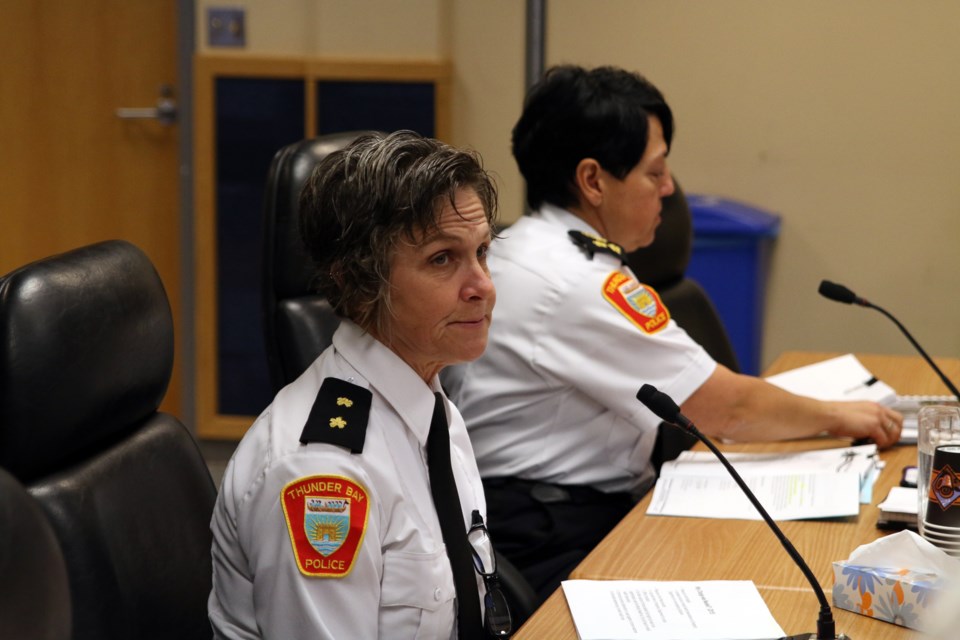THUNDER BAY - In 2017, the Thunder Bay Police Service responded to 1,548 calls for service involving mental health issues. That number has steadily been climbing for the last five years and places increased pressures on the police service and hospital, which is why Thunder Bay Police is pushing for long-term funding for a crisis response initiative.
The Joint Mobile Crisis Response Team pilot project began in June 2018 and was created after several community organizations identified a growing need to change how people in mental health crisis are treated.
According to Insp. Sharon Komar of the community services branch with the Thunder Bay Police Service, the growing number of mental health calls resulted in more people being transported to the emergency department at the hospital, long wait times for officers in the ER, officer frustration, and stress on hospital staff because there is no other options for patients needing mental health intervention.
The idea behind the JMCRT was to have uniform patrol officers respond to mental health calls with trained crisis response workers. A policy for the Crisis Response Team was developed by the police, the Thunder Bay Regional Health Sciences Centre, and the Canadian Mental Health Association to guide officers and health care workers through the transition of an individual in custody under the Mental Health Act from police to the hospital.
“There is two tiers to this,” Komar said. “The first tier is the officers and the crisis workers respond together in the community to a specific location or residence. A large portion of the time, the JMCRT can clear the officers from the location and therefore they don’t even need to go to the hospital.”
“The last thing you want to do is be handcuffed in the back of a cruiser to be taken to the ER and then wait in front many people with police there, who usually know it is a mental health call,” said Thunder Bay Police Service acting chief, Sylvie Hauth. “That is not the proper way of dealing with people and bringing forward the best course of action for them.”
The JMCRT received funding for a pilot project from the North West Local Health Integration Network and has been collecting data since June, operating seven days a week between the hours of 2 p.m. and 2 a.m.
“We’ve already surpassed our goals that we were asked of by the LHIN of numbers that people in crisis that the Joint Mobile Crisis Unit was utilized,” Komar said.
During the four month period, police responded to 538 Mental Health Act calls and the JMCRT was used in 272 of those incidents. Of those calls, police were diverted from the hospital by the JMCRT 107 times and 125 by other means.
Of the 307 emergency department visits by police, only 78 involved officers spending more than 100 minutes at the hospital.
“It’s extremely valuable,” Komar said. “The numbers speak volumes. The transfer of care is quicker and smoother and that person in crisis is getting that service they need quicker and the proper care they need as well.”
Going forward, Komar and Hauth would like to see the JMCRT receive permanent funding and the Canadian Mental Health Association is leading a consultative process involving crisis services and the concept of a Thunder Bay and District Crisis Centre.
“We are in the very early stages,” Komar said. “They are just in the consultation process and that is something that CMHA will most likely be taking the lead on. But if you can get all the services you require in one spot and it’s not the emergency department, the better for the person in crisis.”
